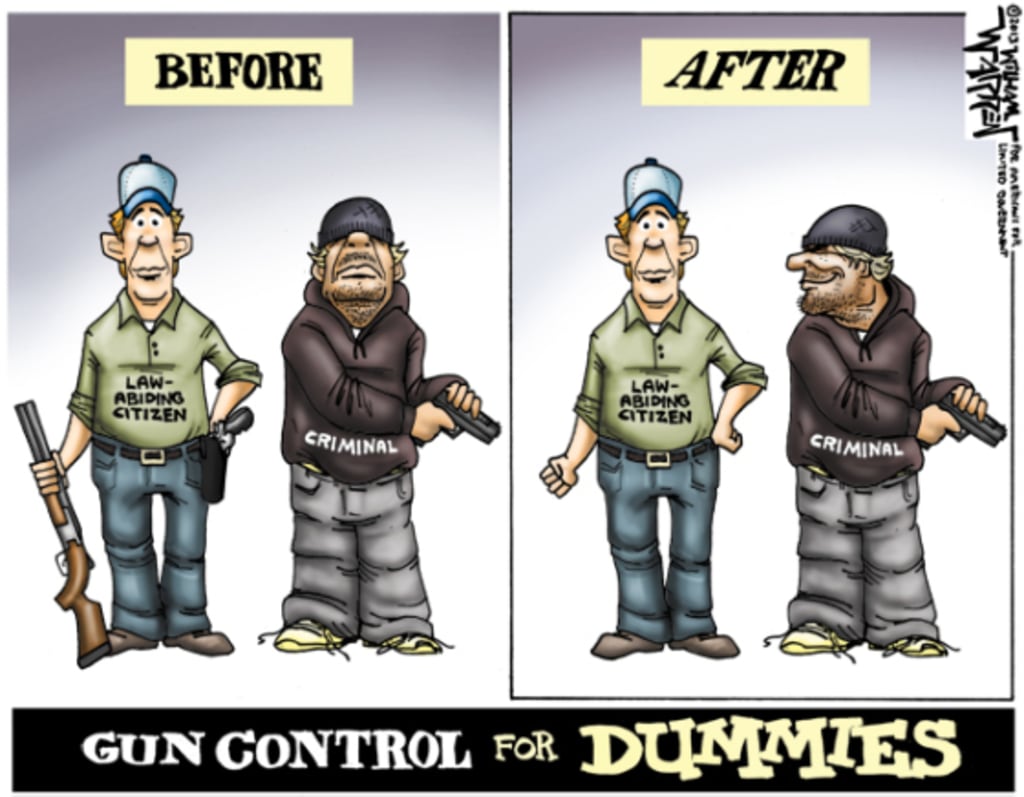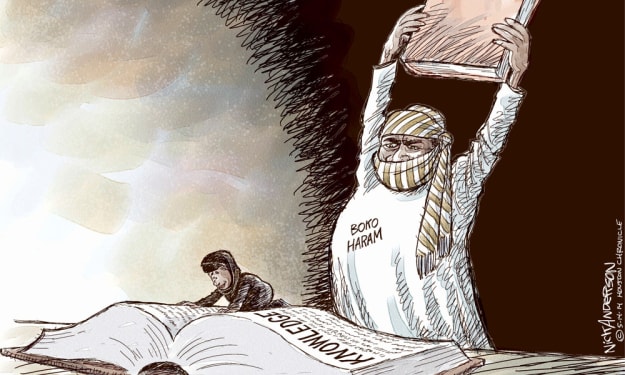To Keep and Bear or Not to Keep and Bear
What is the question?

Through the ages, there has not been so controversial a debate as the one involving an Amendment written by the Founding Fathers to protect the new America from the British monarchy. That debate is about whether gun control is constitutional. Following the ratification of the Second Amendment in 1791, different pieces of historical evidence from the Founding Fathers have been utilized by both liberals and conservatives as support for their arguments, but this essay will focus on only two pieces of evidence. The syntax and the original motive of the Second Amendment’s existence justify right-winged arguments that gun control is unconstitutional, while leftists claim that the ambiguity in the Amendment’s definitions make gun ownership limited to a certain group of people rather than every American citizen.
One representative in opposition to gun control named Robert J. Cottrol, who earned his Ph.D. in Law from Yale University, reminds U.S. citizens why the Second Amendment was originally written: “This desire to maintain a universal militia and an armed population played a critical part in the adoption of the Second Amendment…The Second Amendment, like other provisions of the Bill of Rights, was designed to prevent the newly created federal government from encroaching on rights that were then enjoyed.” Cottrol argues that the able-bodied male population from the ages seventeen to forty-five constituted the nation’s militia, which was meant to protect U.S. citizens against the government if they meant to invade the homes of citizens. Furthermore, Cottrol claims that the language used by the Founding Fathers in writing the Second Amendment is of such a nature that it must have been meant to secure the individual’s right to gun ownership. Cottrol’s assertion about the syntax used by the Founding Fathers in creating the Second Amendment is supported by Sheldon Richman, editor of The Freeman, a conservative monthly journal. Firstly, Richman quotes the Second Amendment: “Without the individual freedom to own and carry arms, there can be no militia.” Richman consulted with language experts on how they interpreted the Second Amendment, and those whom he consulted mentioned that the Founding Fathers’ usage of clauses, commas, and other grammatical decisions did not imply that gun ownership should be limited strictly to the militia. Joseph Sobran of The Conservative Chronicle goes further to explain that the Second Amendment forbids the government to infringe on the right that the people had to keep and bear arms and that the powers not "'delegated' to the federal government are ‘reserved’ to the states and to the people.” Sobran even mentions how liberals argue that the Fourteenth Amendment, which requires that both the state and the federal government must not violate the rights of the people, does not apply to laws concerning gun ownership.
On the other hand, those who support gun control have a different viewpoint of how the Founding Fathers gave meaning to the Second Amendment. Charles L. Blek Jr., an advocate for the prevention of gun death and injury, argues in an essay entitled “Gun Control Is Constitutional” that gun ownership only enabled the country to have an effective militia, not to give the right to bear arms to every citizen. Blek appeals emotionally to his readers when he mentions how he spoke with the father of a boy who was killed by a shot wound to the face: “When will we say enough?” Then goes further to state that instead of mourning the fatalities of gun violence, we must direct our attention to changing the laws concerning gun ownership. A recent witness of the effects of gun violence is David Hogg, who is a student at Parkland High School in Florida, where seventeen students and staff members were shot and killed by Nikolas Cruz on February 14, 2018. When asked by an interviewer at The Outline if Hogg could have one federal law passed, what it would be, Hogg answered with, “I would like to see a ten percent tax on all firearm sales, I would like to see the federal age of gun ownership and possession raised to twenty-one, I would like to see a universal background check implemented, and I would like to see more mental health care spending to ensure that people like the shooter at Stoneman Douglas are not able to get these guns.” However, Hogg does not offer any reasons for his answer except for the implication that people like Cruz who have mental health issues need help. Another representative of gun control, Garry Wills, who is an adjunct professor of history at Northwestern University, analyzes the word choices utilized by the Founding Fathers in the situation of gun possession by saying that the two-word phrase “bear arms” is a “military term,” “to keep” was intended to apply to the nation’s militia, and “well-regulated” also only applied to the militia. The analyzation of the Second Amendment as a purely military rule is supported by Michael Waldman, speechwriter for the former President of the United States Bill Clinton. In Waldman’s The Second Amendment: A Biography, he states that the term “well-regulated militia” was defined by the Constitution as the military forces controlled by state governments.
Throughout this essay, there have been several stark contrasts differentiating the two viewpoints. On the side which opposes gun control, the representatives provide arguments which state the original motives for the Founding Fathers to write the Second Amendment, which was to arm the people in defense against the newly-formed government. The representatives also use clauses in other Amendments to help support their argument. On the other hand, the representatives in support of gun control state that it was only the nation’s militia that could bear arms, not each individual. They also use emotional evidence from real-life experiences to support their claim. The side which presents their argument the best, in my opinion, is the side which is opposed to gun control. When America was in its early stages of development, it wished to be independent of the British forces that were invading the private homes of its citizens. To prevent trespass from happening again, there had to be some sort of document which prohibited it. The representatives opposed to gun control stated plainly that the syntax used by the Founding Fathers in writing the Second Amendment undoubtedly meant that they intended for every American citizen who craved freedom from the British monarchy to own a firearm. However, some of the representatives who supported gun control did not present solid or necessarily logical evidence as to why gun ownership should be restricted. David Hogg, in stating that he would like to see more mental health care funding to protect the public from mass murderers like Nikolas Cruz, did not realize that Cruz should have had that care due to federal and state law, which prohibits those with mental health issues from owning guns: “It is unlawful for any person to sell or otherwise dispose of any firearm or ammunition to any person knowing or having reasonable cause to believe that such person ‘has been adjudicated as a mental defective or has been committed to any mental institution.’” Waldman and Will, too, only analyze the syntax utilized by the Founding Fathers in a military fashion, saying that gun ownership was meant for the nation’s militia, which had not even been properly formed in America’s earliest years of formation. In the case of debating one of the nation’s most heated topics, one must argue in a logical sense with absolute supportive evidence to make the argument valid.
The historical motive behind the Second Amendment’s existence and the language by which the Second Amendment states its purpose have been used by many notable scholars as determining factors of the constitutionality of gun control. Those in opposition to it, state that the citizens had to protect themselves against the private home invasion of British soldiers and that it was the express wish of the Founding Fathers that every citizen should own a firearm. However, other scholars believe that the nation’s militia, though not yet formed, was the only institution allowed to own firearms and that the syntax used by those who wrote the Second Amendment was too ambiguous to definitively say that all citizens could own firearms. American citizens have been engulfed in the debate about gun control since the Second Amendment was ratified, but many do not necessarily understand the history of its making. To become involved in the debate, understanding the matter at hand and having the capability to argue one’s position is crucial. I believe it is only logical to assume that, since there was no properly formed militia in 1791 and citizens feared trespass by British soldiers, it is the right of every American citizen to keep and bear arms.
Works Cited
The Blaze. “A Side of David Hogg You Haven't Seen...” YouTube. Video File. February 21, 2018. https://www.youtube.com/watch?v=FJmrp6dJtrM.
Cornell, Saul. Whose Right to Bear Arms Did the Second Amendment Mean to Protect?. Boston, Mass: Bedford, 2000.
Cothran, Helen. Gun Control: Opposing Viewpoints. Farmington Hills, MI: Greenhaven Press, 2003.
Cottrol, Robert J. Gun Control and the Constitution: Sources and Explorations on the Second Amendment. New York: Garland Pub, 1994.
Doyle, Kelly. Is Gun Ownership a Right?: At Issue Series. Farmington Hills, MI: Greenhaven Press/Thomson/Gale, 2005.
Waldman, Michael. The Second Amendment: A Biography. New York: Simon and Schuster, 2015.
18 U.S. Code § 922
About the Creator
Sarah Bryan
My main passion is for playing the piano. Currently, I am a music major in Texas and I just recently won one of the most prestigious music awards known as the Clara Freshour Nelson Music Scholarship which is awarded to 15 college freshmans.






Comments
There are no comments for this story
Be the first to respond and start the conversation.